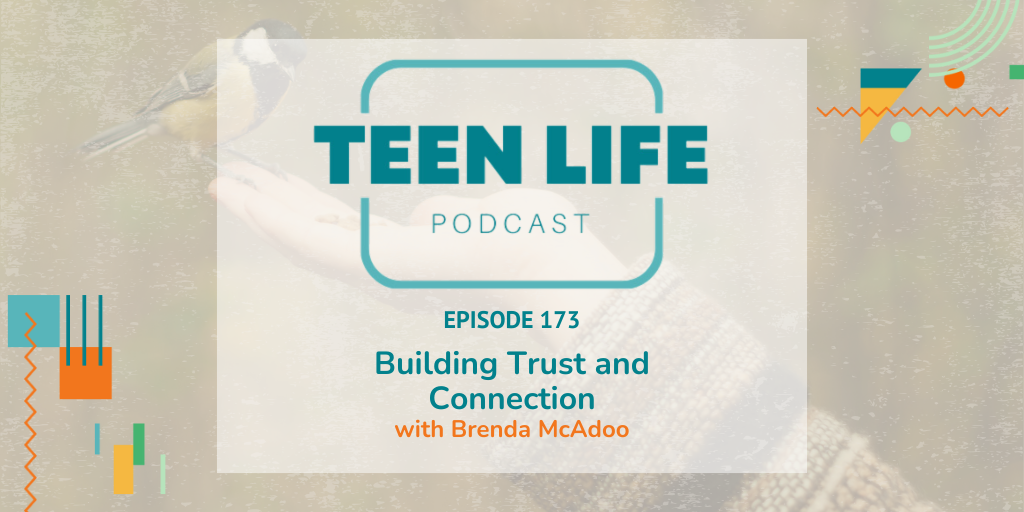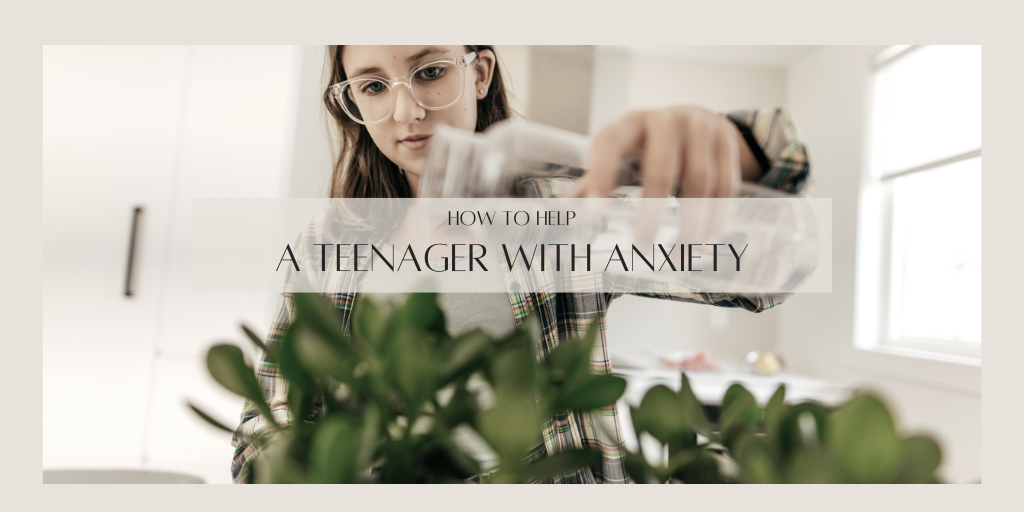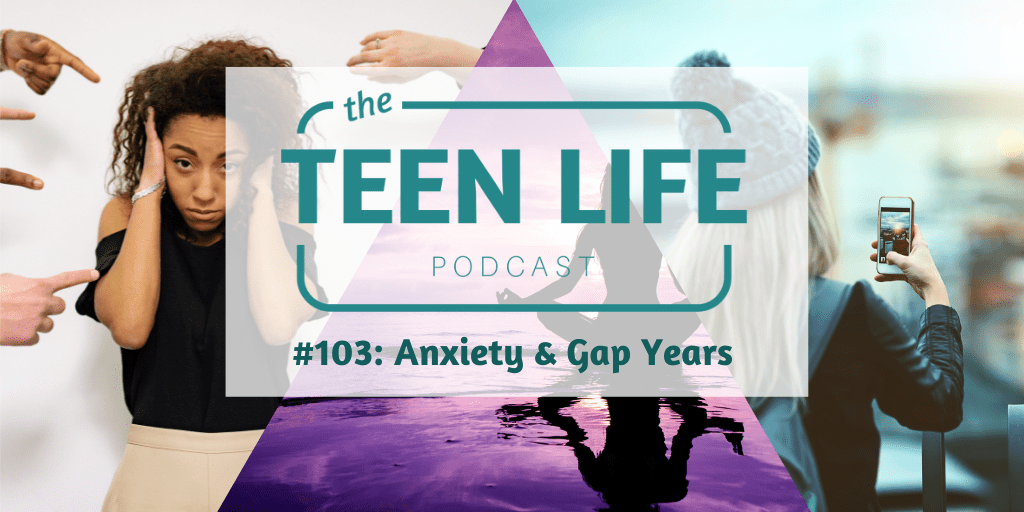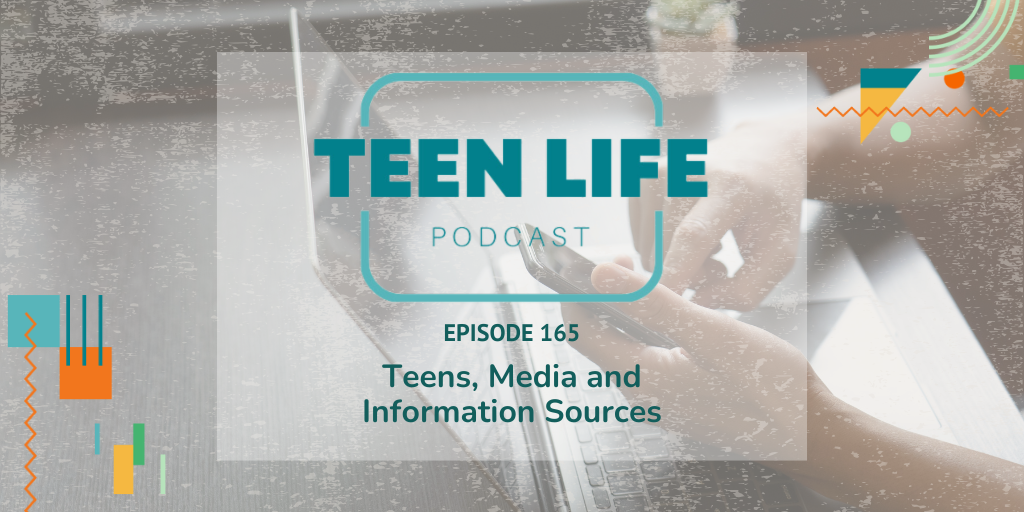Podcast: Play in new window | Download
Trust is the foundation of every meaningful relationship.
So how do you build trust with teens—especially in a world where they may be more guarded than ever?
We sit down with Brenda McAdoo; former Deputy District Attorney in Ventura County member; FBI mediator and crisis negotiator; and currently on faculty at Abilene Christian University.
An expert in the field, Brenda shares practical ways caring adults can foster trust, create safe spaces, and truly connect with the young people in their lives.
Whether you’re a teacher, coach, mentor, or parent, this conversation is packed with insights to help you strengthen your relationships with teens and make a lasting impact.
Key Questions
- Why is trust the foundation of any meaningful conversation, and how do you build it quickly?
- What are the most effective ways to create a safe space where teens feel comfortable opening up?
- What practical techniques can adults use to make teens feel heard and understood?
What We Cover
07:30 Non-verbal cues, such as eye contact and body language, to gauge the level of trust and connection with a teenager.
09:53 Developing active listening skills, including using minimal encouragers, paraphrasing, and reflection.
17:34 Asking open-ended questions that allow teenagers to share their experiences, rather than narrow questions.
How do you build trust quickly?
Building trust with teens is essential for fostering open and meaningful conversations. Without trust, teens are less likely to share their thoughts and feelings.
To establish trust quickly:
Give them a sense of safety.
Trust isn’t just about words—it’s about how they feel around you. Creating a non-judgmental, accepting space helps them feel secure.
Listen with empathy and understanding.
Teens need to feel heard, not just listened to. Show them you genuinely care about their perspective by validating their feelings.
Show up fully and be present.
Put away distractions, make eye contact, and engage in the moment. Being physically present isn’t enough; your emotional presence matters just as much.
Remain shock-proof.
If a teen shares something surprising or difficult, react with composure. Showing calmness encourages them to keep opening up, knowing they won’t be met with judgment or alarm.
What are the most effective ways to create a safe space where teens feel comfortable opening up?
Teens need a supportive environment to express themselves freely.
Some ways to create that space include:
Consistency matters.
Showing up consistently builds trust over time. Teens need to know you’ll be there no matter what.
Match tone and body language.
Mirroring their energy and demeanor can help them feel at ease.
Demonstrate unconditional support.
Make it clear that their worth isn’t conditional on their behavior or what they share.
Respect confidentiality.
Unless safety is a concern, what they share should stay between you and them. This reinforces trust and reassures them that they can speak freely.
How do I keep teens talking?
Active listening is a critical skill for building trust.
Try these techniques:
Minimal encouragers.
Use non-verbal cues like nodding or verbal affirmations like “I see” or “Go on” to encourage them to continue.
Paraphrasing and summarizing.
Restate what they’ve said in your own words to show you’re engaged and understanding.
Reflection.
Repeat their last few words to prompt them to elaborate. This can be as simple as, “So you felt frustrated?”
What if I misunderstand?
When that happens:
Admit when you’re wrong.
Teens respect honesty and humility.
Ask them to tell you again.
A simple “Tell me again, I want to make sure I understand” shows you’re invested in truly getting it.
Stay curious.
Curiosity fosters connection. As Brenda McAdoo puts it, “Curiosity is the superpower of successful people.”
How can adults keep showing up so teens know they can trust us?
Building trust is an ongoing process that requires consistency and intentionality.
Some ways to show up for teens include:
Ask questions that focus on them.
Show genuine interest in their lives by asking thoughtful questions.
Create opportunities for hard conversations.
Don’t shy away from deep topics, but approach them with care and patience.
Find a balance between going deeper and staying non-confrontational.
Approach sensitive topics in a way that feels safe rather than interrogative.
Avoid ‘Why?’ questions.
Why questions can feel accusatory. Instead, use ‘How?’ and ‘What?’ questions, which encourage thoughtful responses.
Ask open-ended questions.
Instead of “What did you and your friends do today?” try “What’s the best thing that happened to you today?” This invites more meaningful discussion.
How do I know when I have enough emotional capital to ask deeper questions?
Building trust takes time, but you’ll notice key signs when a teen feels comfortable with you:
- They make eye contact and react positively when you greet them.
- They turn toward you when you enter a room.
- Fun fact: If a person you have a connection with yawns, you are more likely to yawn with them! This subtle sign of connection shows that a level of trust has been established.
Some Last Thoughts
Building trust with teens takes patience, presence, and genuine curiosity. By listening well, being consistent, and showing up in a way that makes them feel valued, you create the foundation for meaningful conversations and lasting connections.
Read Episode Transcript
0:00
Music. Welcome to the Teen Life Podcast, where we explore your questions to help you make meaningful connections with teenagers, because no teen deserves to feel alone. Now today we have an extra special episode, because we’re kind of, we’re still asking questions, we’re answering questions, but we have a special guest, which is Brenda McAdoo, and I’m also joined by Nino Elliot today, who’s stepping in for Tobin after he had his baby. So we’ve got a full episode that you are going to be blessed by the wisdom that is coming from Brenda especially. But Brenda, let’s kick it off. Why don’t you give us just a little introduction into who you are before we get into your stuff today.
0:50
Great. Thanks so much for having me. I’m Brenda McAdoo, and I’m currently the chairman of the teen life board, and love the work that we do with teens. My background is that I spent 24 years as an FBI special agent. 22 of those were as a hostage negotiator, dealing with people in really dark places and in hard times. So I became interested in why people do the things that they do, and since then, I’ve retired, and I now work for Abilene Christian University as a professor in conflict resolution, yeah?
1:22
So I mean, the stories, I’m sure that Brenda can tell us, yeah, are going to be something that we’ve been wanting to get you on the podcast for a long time, Brenda, so I’m glad that
1:32
Yeah, absolutely.
1:33
it happened. It finally happened. So let’s start off with the first question. And we’re actually going to have three episodes with you, so there’s going to be more coming. Because I, as we were looking through questions, I was like, I can’t get it all into one episode. But today, let’s kick it off with, why is trust the foundation of any meaningful conversation? And then how do you build it quickly? Like for our listeners, we’re like, I’ve got teenagers in my life, and I need to build this trust. How can they do that?
2:01
Yeah, trust is really important for connection, and trust is not an easy thing to build unless you have a relationship. And so we talk a lot about, how do you build it quickly with strangers, which is what I had to do as a hostage negotiator, and to build it quickly because there was something going on that needed to happen, but really as a parent or as an important, you know, adult in a teenager’s life, you can build rapport. And sometimes it does take time, but there are some things that you can do to speed it up, especially if you have a short amount of time. You need to get to know them really well and build that trust really it’s about giving them a sense of safety, not so much about what you do. It’s about what they feel. And so as we figure out how to have a shared space and building common ground, it’s not always about, Oh, do you like the Mavericks, or are you more of a you know, stars fan because you like hockey? It really is about, do you trust in me? Do you feel safe saying things to me, one that I’ll keep I’ll keep that confidence. If I’ve told you that I’ll keep your confidence, but that that connection is strong enough that that I feel safe talking about hard things. And so there are a couple things that you can do to build it quickly. The two things I would say to build trust quickly are: listen with empathy, and those aren’t always easy for people, because personality wise, a lot of us are not wired for empathy innately. Now there’s some people who are, and I will say those of you out there who have empathy for others, you feel with others. It is a gift to the world. I do not have innate empathy. I had to learn how to develop it and convey it to people. But also for those of you that have it, you need to guard your hearts, because it can also be a curse to you, right? Because you feel with others. And so that can be hard, but with teenagers to be able to listen to them without judgment
4:59
With understanding I love that. I think I’ve seen that in our groups- I had a group the other day, and one of the first questions they asked was not What do I like or about my family- it was, are you coming every week? Yeah, and the just that ability to feel safe. And I was like, okay, that matters more than even what we’re doing or that I brought snacks, but are you going to come back?
5:21
Are you someone that is safe and that, yeah, not just safe, but consistent, right? Like, because, frankly, teenagers are at a point in their lives where they don’t have a lot of bandwidth for people who aren’t going to stay or who don’t show up fully and be present, right? And so those things are really important, too. I liked your non-judgmental aspect, because, I think a lot of times, and we’ve talked about this in our groups, for our groups, as facilitators, especially, but is the ability to have a non-shocked face, right, and so if you want to gain trust, they’re going to potentially say things that are going to they’re going to gage how do you respond. And so to, you know, to be able to pause, listen and kind of almost show no emotion, or appropriate emotion, maybe. But I think that’s a big one as well. That aligns with that, yeah, and I would say, as parents and as important adults in kids’ lives, that we have to be able to be shock-proof, is what I call it, but you don’t have to be unemotional bullet-proof, right?
7:16
that we can take it in, but we don’t have to react right away. Now, you’ve talked a lot about creating that safe space and how important that is. So what are some like, Effective, Practical Ways that we can create a safe space for teenagers, where they can open up outside of I know you mentioned listening, but what are some other things to make the space?
7:34
Yeah, so non-verbals are huge for kids. They will watch that more than they will your words. So that is a little bit about how you hold your body. Like, we’re not always aware that we’re tense. Sometimes I realize I’m sitting right, I’m sitting somewhere, and because I’m, like, leaning in and I’m kind of still, and my, you know, holding my neck a certain way, I can tell, like, Oh, I’m tense. Well, they can feel that more than see it. They sense it. And so I think our non-verbals have to match our words, and then our tone has to match our words. So I give people the explanation, you know that can maybe the example where if you say I’m fine, you can say it different ways.
8:19
I’m fine is very different than I’m fine, right? And so tone really matters. And so if we can match our tone and our body language with our words, that’s what creates safety, because consistency, not only in the you showing up, right, but in how you behave with them. In the hard times, you can behave however you want when things are easy and they’re happy and nothing’s going wrong, but when things are going wrong, can you behave in a way that shows them? I’ll show up, I’m present, but I love you unconditionally. And the unconditional piece they need to know that no matter what they say or do that you will still treat them the same. Now that doesn’t mean they don’t get disciplined. That doesn’t mean there aren’t consequences. There’s natural consequences, but lots of things teenagers do. But can there not be consequences to how how I treat you and how you feel in my presence? Right? So that we don’t get to where we’re dismissive, or we show the disgust, or all the things right, that that put up a wall between one
9:29
of the things that we talk about, and you probably know better even than us, to teach us, but in our training is even non verbal cues to show I’m listening like the things that I do. I can do certain things in a group. I can make eye contact, I can lean forward, I can nod my head, like, are there other things like that that you’re talking about, non verbals that can help us show am hearing you and I understand you even
9:53
Yeah, so the FBI and every other police agency that has hostage negotiators teaches something called Active list. Listening, but so does sales, so does marketing, right? So do all the persuasive lawyers. I mean, like anybody who has to persuade someone, kind of studies this, but that’s where it came from. And so those active listening skills include that, and so they are minimal encouragers. It’s the uh huh, wow, okay. It’s the nodding, the smiling a little bit when someone’s talking, anything that minimally encourages them to keep talking. So actively listening. The reason we say active is that it can. It encourages them to continue their story their way. Right? If you ask them to bombard them with questions, it’ll sound like an interrogation. It’ll sound like you’re drilling down too far to get in their business, and teenagers don’t like that. And so how can we actively listen? So both if you do the leaning in, smiling, nodding, and then add some of those verbal things as well, in addition to the minimal encourager, you can do a couple other things. One of them is to paraphrase. You’ve got a kid who’s been talking to you about something for a bit, and then when they stop or take a breath, you can either ask a question, which we’ll get to asking questions, but you can also paraphrase, or summarize what they’ve said. It tells them, not only I heard you, but I can put it in my own words, which conveys understanding. So there are some things as you’re having that conversation, even if they’re just small, things you can say, like, let me see if I got that right when you went to this class, this is what happened. And I use my own words to show them that I took it in, but I also really understood it. Another thing that you can do is what we call reflection. And with reflection, you’re just going to take the last few words of what they said and say it back to them. It’s like a mirror. You do this really well. People won’t even know that you spoke. So here’s what it sounds like. It’s not magic, it’s just, it’s communication skills. Yes, I know. So as somebody’s talking, they’re telling you, like, Hey, I had some trouble setting up my equipment, and nothing would go right. And, you know, my friend was over here, like, bugging me, and, you know, just really pushing me, pushing you. Yeah, they were pushing me. And I felt kind of stressed. All I’m taking is like, two words at the end, one or two words at the end of what they’ve said, and I’m sliding it in with my own inflection. That’s like
12:25
And because of that, they continue the story past what they might normally do fascinating, and so they don’t even recognize that you’re saying it, but you’re encouraging them to continue talking to you. This is really good for teenagers, because sometimes they come home from school. I have a teenager. Our last child is in high school right now, and I will ask him how his day went. And he’s like, Fine, or nothing happened, or is it the same? He just says same. It’s like one word, right? So then I’m like, Okay, what question do I ask now? Well, I usually ask if anything funny happened. Once he starts to tell the story. Now I’m going to use minimal encouragers to show him I’m there and listening and present. And I wasn’t just asking because I ask every day when you come in, how you are, but I’m actually interested. And so then I’ll repeat something back, or I’ll use a reflection which gets him to continue that story, I’m going to learn way more than I would have about him and his friends in his day, and then how he’s doing. And those are those can be really, that, really powerful in that beginning of conversation, right?
13:33
So even just finding, Hey, what is the thing that’s going to get them talking so that I have something to work with, right? Right? Okay, I do have a question, because there have been times where I have paraphrased and they’re like, No, absolutely not. You’re so off. So how, in that moment as an adult, can we respond in a way that’s like, Okay, I was wrong. Yeah, exactly that way. Like, really, I Okay. Then tell me again, I got that wrong. Um, with honesty. I think when, when you say honestly, I got it wrong. I think that gives the kid like you’re not, no, no, I said it this way or whatever, and dismissing what they just spoke right?
14:12
So I love that. Just own up to it and then, okay, tell me again. I wouldn’t I really want to get it right. Well, this is especially important now when you’ve especially if you’ve got teenagers, and they are middle school, maybe especially where the language is already changing again. So if you had a teacher that just graduated, you knew all the words in the vernacular they were using. I don’t know it again. So now I’m like, they come home and be like, Man, he was selling. Selling is a good thing, right? No, it’s not. Actually. It means that you’re not doing well. And so being able to ask, even like, if he says, like a whole sentence, and I don’t know what any of that meant, right? I need to ask be curious. Curiosity is actually the superpower of successful people. I love that.
15:00
Yeah, I know. I also feel like teenagers can see through if you’re trying, like, if I’m trying to talk like a teenager, they’re gonna look at me and be like, Absolutely not. That is not helpful. Or if I’m just like, oh yeah, just going along with it. And they’re, they’re looking at me, going, she has no idea what we’re talking about. And they can see through that very, very quickly. And make sure you don’t ask for the definition in a judgmental way, like I hear parents that are like, don’t say those words. That’s silly, don’t they? They’re going to use the vernacular that they use. We use the vernacular that we had, right, right? And sounds silly to them now, from the, you know, from the 70s and 80s. So red time exactly, gag me with a spoon, all the things, but, but to be curious and to be truly want to know the things that they’re saying and experiencing, I think, makes a difference. That goes back to building the rapport and the connection and Brenda along that same question with this trust building. You mentioned it earlier, Karlie, and we do in our groups, we have this
16:02
ability. And you’ve also said it, keep showing up. Keep showing up. And so if it’s not a group setting, what are ways you think are possible for us to be able to keep showing up in a teenager’s life, to know that I want to have a relationship with you. I want you to trust I want to show you. I want to be an important person in your life.
16:27
I think asking questions is a lot of that in that space, because you don’t have a whole lot of time with them in group. And frankly, we don’t have a lot of time with our teenagers these days. They’re running off to sports, they’re going after, they’re going with friends and and so can we take advantage of the space we do have with them? And I think asking questions that make it about them, not asking questions about what they’re going to be when they grow up, they don’t know. And it’s going to change. There are very few kids who go all the way through and they are still doing what they said they were going to be doing when they were, you know, 15. But I think asking questions about them and not being afraid to ask hard questions, I think that kids, they don’t expect it right, because they don’t know that they’re going to like it. But I think some of those hard questions about, well, what did that? What did that do to you? Or, you know, Man, that sounds like that was something really hard. Do you want to talk about it? I mean, even just the opening up of space, even if they don’t take you up on it. So I think asking questions is is really important in the keys to ask the right question, right so then that begs the question, what are the right questions? So the right questions are ones that aren’t confrontational, but are deeper than surface. So fine line, right? How do we balance being deeper than surface, but not not being confrontational? So good things to stay away for a why? Because why is one of those questions that maybe implies that they’ve done something wrong. So that’ll make them defensive, right? But if you can ask, how, what? And leave it really open. So I think sometimes as parents, we make the mistake of asking questions about a certain thing instead of a topic. So what did you and your friends do, as opposed to what was the best thing that happened to you today? Or are you enjoying that set of friends? Do you feel like that’s a place that you guys are going to stay friends for a long time, right? Which leaves it really open, then they can tell you what they did today or what they talked about,
18:44
right? We’re asking too narrow of a question. Yes, yes.
18:47
So I would say open-ended questions, which is another one of the active listening techniques, but open-ended questions that really allow them to choose where to go with the conversation, and then we flow with that.
18:59
So Josh has- he’s a basketball coach, and so I’m around these boys, but not a ton. And sometimes I find myself asking, like, how do I know when I have enough relational capital to ask a question that might be deeper, are they going to look at me and be like, You don’t know me well enough to ask about that? Like, what do you what are you doing? So I don’t know if there’s a like, clear answer to that, but how do you know? Like, okay, I feel like there’s enough relationship here that we can go deeper. Yeah, so lots of times the kids, I was a basketball coach too, for a while, my kids were young, and I then you’ve got a bunch of kids, right? You don’t even know them very well, but here’s, here’s one of the ways that you can tell kids, teenagers, whether you have relational equity, is that when you say hello to them, they actually look you in the eye and they follow up with something.
19:47
and and I think that it makes it small, right? So if you say, Hey, how are you? And they’re like, fine, and mumble and look down, right? And go on, you don’t have relational equity. But if they will look you in the eye and. And there’s some sort of reaction. It doesn’t have to be a smile, right? Because not all kids are wired to be friendly, right? But it has to be some sort of reaction to you, non verbally, and then it’s a look you in the eye and give you the answer. And then you can tell that you’ve actually created connection. So we’re wired for connection, so Neuroscience tells us that it’s one of the reasons we yawn when other people do, right? So we are wired for connection with each other, and in some form, I don’t know all the science, but our brains talks to each other. That’s why, when people yawn on the TV, you don’t yawn.
20:35
But when people who are near you trying not to yawn, over there
20:38
that have you have a connection with if they yawn. You do. So when you’re around the, you know, the dinner table, or at Thanksgiving or whatever, and somebody yawns, you can see who likes that person, right? Because you only yawn with people you have a connection with. It is not a universal thing.
20:56
Oh, I have to test that. Wow. Okay, yeah,
21:35
That’s good and so helpful. Well, thank you, Brenda.
21:37
I am, I mean, I could keep going and going, and that’s why we’re gonna have more episodes.
21:42
Yeah, that’s good, because we want to keep picking your brain. But thank you so much for the wisdom that you shared. And if you’re listening to this podcast, as always, subscribe. You can also email podcast@teenlife.ngo if you have any questions that you want us to cover or topics that you want us to talk about, and we’ll see you next week.

Karlie Duke
Communications Director

Nino Elliott
Executive Director

Brenda McAdoo
Special Guest
Nino Elliott | Executive Director
Nino is the Executive Director for Teen Life, driven by a deep passion for supporting and empowering teens. With a Bachelor’s in Youth and Family Ministry and a Master’s in Marriage and Family Therapy from Abilene Christian University along with time spent working as a pastor and as a fundraiser, he brings a wealth of knowledge and experience to Teen Life. Committed to fostering positive relationships and creating meaningful programs, Nino is dedicated to helping young people navigate life's challenges and discover their potential.
Brenda McAdoo | Special Guest
Brenda spent 24 years as a special agent for the FBI, investigating crimes against children, violent crime, and organized crime. She served on an organized crime task force that investigated groups committing extortion, kidnapping and murder for hire. She was a member of the FBI crisis negotiation team from 1998 to 2020, including serving as team leader for seven years. She trained law enforcement officers in crisis negotiation skills both here and abroad, and she was a certified federal mediator for the U.S. Department of Justice from 2007 to 2020. And now, she’s shaping future agents, officers, and servants through an online undergraduate criminal justice program at ACU.
(excerpt, https://acu.edu/2021/06/30/on-a-mission-former-fbi-agent-heads-new-online-criminal-justice-program-at-acu/)
Karlie Duke | Director of Communications
Karlie has always had a heart for teenagers. Through her role at Teen Life, she loves to showcase the amazing stories coming out of Support Groups, but she is especially passionate about helping adults and teenagers find connection. Karlie has a BS in Communications with a minor in Family Studies from Abilene Christian University.



